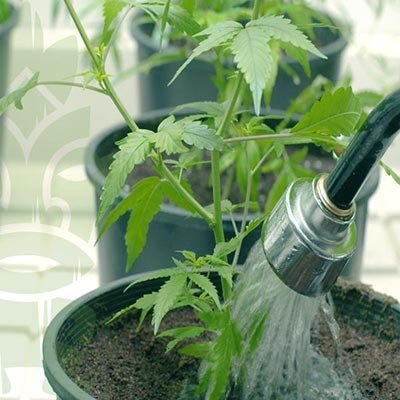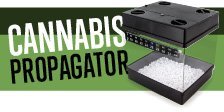Don't have an account?
Register NowYou have to add to cart at least 5 bottles or any program to make checkout.
- Cannabis Info Grow Guide Growing Conditions Nutrients for Cannabis Plants
Disclaimer
Zativo caters to private customers only, and does not supply commercial or industrial growers with large amounts of cannabis seeds. If we have reason to suspect that the ordered seeds are destined for growing cannabis on a larger-than-private scale, we reserve the right to dismiss that specific order.
Nutrients for Cannabis Plants

Nutrients and fertilizers are an important part of your cannabis plants' lives. They provide the elements your cannabis needs to perform its bodily functions; they are involved in pretty much every aspect of your plants' growth. Without the correct nutrients, your cannabis will suffer, growing stunted and sickly – possibly even dying. Making sure you know what to use, how much of it to use and what signs to look out for are all very important if you want to become a successful cultivator.
If you wish to see your seedlings grow into beautiful, mature cannabis plants then there are several nutrients they are going to require. This article should give you a brief overview of exactly what these are and what they do.
There are three groups of nutrients you should be aware of. These are the macro nutrients (primary and secondary) and the micronutrients.
So how are these nutrients used by your cannabis?
Primary Macro Nutrients:
These are the 3 major and most important nutrients your cannabis plants are going to need and will likely require regular supplementation throughout the growth of your marijuana.
Nitrogen (N):
Nitrogen is used for many tasks by your cannabis. It is required for the production of chlorophyll (used in photosynthesis), amino acid, nucleic acid and proteins; it also promotes healthy foliage, root absorption and plant growth. Nitrogen compounds account for up to 50% of your cannabis plants' dry matter, it is extremely important and one of the most common deficiencies seen in cannabis grow rooms.
Phosphorus (P):
Phosphorus is used throughout the cannabis plant life cycle. It is used for blooming, photosynthesis, root development and is a major requirement for the respiratory functioning of the plant's living cells. Also, without phosphorus, cannabis plants cannot utilize nitrogen properly. Because it is used for blooming, cannabis plants use a lot more of this nutrient in the flowering phase.
Potassium (K):
Potassium is used for an array of tasks. It is required for photosynthesis, the creation of proteins and carbohydrates, it is used during enzymatic reaction, assists in the uptake of silica, promotes a healthy immune system and helps maintain the water transportation networks of the plant.
Secondary Macro Nutrients:
These are often found naturally in soil, but sometimes in inadequate amounts – you may need to supplement these at some point throughout the growing process.
Calcium (Ca):
Calcium is used in enzymatic reactions, the construction of cell walls and used for the neutralization of organic acids.
Sulfur (S):
Sulfur is used for the creation of enzymes and amino acids.
Magnesium (Mg):
Magnesium is the key element used in the creation of chlorophyll, magnesium is also used for the absorption of phosphorus and for certain enzymatic reactions.
Micro Nutrients:
These micro nutrients are less important to the health of your plant and found naturally within soil, it is unlikely you will need to supplement these, they are used in very small amounts.
Iron (Fe):
Iron helps with the production of chlorophyll.
Boron (B):
Boron helps create and strengthen cell walls, it is also required for root development.
Chlorine (CI):
Chlorine is used for osmosis and photosynthesis.
Manganese (Mn):
Manganese is required for the creation of chloroplasts, which are used in photosynthesis.
Copper (Cu):
Copper is used during photosynthesis.
Zinc (Zn):
Zinc is used to create a large number of enzymes, it is also used to transcribe DNA.
Cobalt (Co):
Cobalt is used by beneficial bacteria and for nitrogen fixation.
Molybdenum (Mo):
Molybdenum is used to create amino acids.
As you can see, your cannabis uses a lot of nutrients, to different extents, for its day-to-day growth. It is extremely important that the correct levels of these nutrients are maintained, both over and under fertilization can have detrimental effects on your cannabis.


